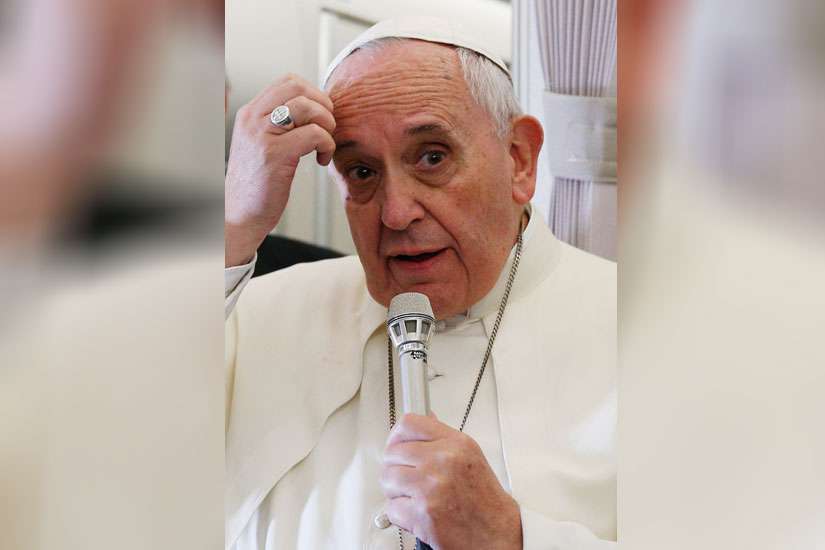The Pope, during his Jan. 19 press conference aboard the papal flight home from the Philippines, told reporters, “Some people think — excuse me for saying this — that to be good Catholics we have to be like rabbits.” The Pope stressed that Catholics need to practise “responsible parenthood.”
“To me it’s funny, maybe because I have a large family,” she said. “But also because he’s just so spontaneous. I think it’s the kind of remark one makes in conversation. He would not put that in an encyclical.”
Among Catholics who have been radically open to life in their own marriages, it seems nobody is taking offence at the Pope’s impromptu lesson in responsible parenthood.
“He’s completely correct. He’s not making any new statements,” said Patrick Douglas, a 39-year-old father of eight, whose wife Carissa is expecting twins in the next month. “We’re all called to responsible parenthood.”
For 42-year-old Liz Rebello, whose six boys and six girls range in age from nine months to 17 years, there’s no reason to second guess the Pope’s remarks.
“It sounded like people were kind of missing what the Pope was actually saying,” said Rebello.
Pope Francis spoke further about large families Jan. 21.
“Healthy families are essential to the life of society. It gave us consolation and hope to see so many large families that welcome children as a true gift of God,” he said.
“They know that every child is a gift of God. I heard it said that families with many children and the birth of so many children are among the causes of poverty. It seems to me to be a simplistic opinion. I can say that the main cause of poverty is an economic system that has removed the person from the centre and put the god of money there — an economic system that excludes, that always excludes, children, the elderly, the youth without work.”
The Catholic Children’s Aid Society in Toronto never finds itself intervening in families just because of sheer numbers.
“In speaking to some of our clinical staff, there is no correlation between family size and the issues that bring families into contact with CCAS,” said spokesperson Alison McLennan in an e-mail. “Factors such as mental illness, addiction, domestic abuse and poverty contribute to problems with parenting and can be present regardless of the number of children in a family.”
The idea of responsible parenthood got a big boost in Catholic teaching from Pope Paul VI’s 1968 encyclical Humanae Vitae.
“With regard to physical, economic, psychological and social conditions, responsible parenthood is exercised by those who prudently and generously decide to have more children, and by those who, for serious reasons and with due respect to moral precepts, decide not to have additional children for either a certain or an indefinite period of time,” wrote Blessed Pope Paul.
Rebello had her first 10 children without ever thinking of limiting family size.
“When we had our 10th one, I remember saying to my husband that if I have another baby right now, if I get pregnant, it’s not going to be good for this family because physically I wasn’t feeling that great,” Rebello said.
She and her husband Steve then began to practise natural family planning, which stretched the gap between number 10 and 11.
Rebello and her family get plenty of attention. On balance, Rebello finds she encounters more positive reactions than negative.
“They think it’s the most incredible thing that we can handle having all these kids,” she said.
Patrick Douglas finds more curiosity and positive comments.
“Maybe they’re just being polite to my face. But it’s a good thing to be able to share that — that it’s something that is possible and something that is joyous.”


